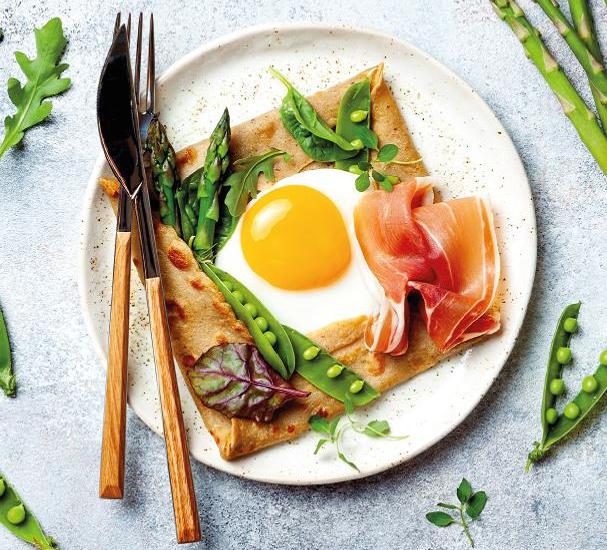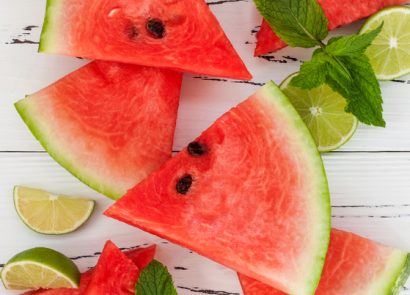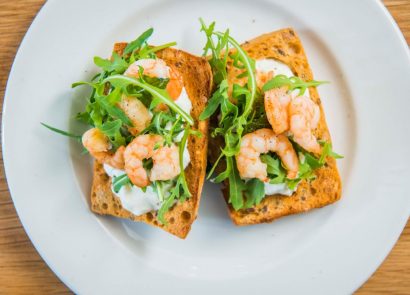Stuck on the blood sugar roller coaster? In his new book, GP Dr Rangan Chatterjee reveals his radical advice that could change your life
Picture this common scenario. You wake up and eat a bowl of cereal: some healthy-looking granola, say, with a dollop of low-fat yoghurt. Your stomach stretches, your hunger signal switches off and you feel satisfied and full. But two hours later, you’re going about your day, and you’re suddenly starving again. You go to the kitchen to make a cup of tea and, while the kettle’s boiling, can’t resist the temptation of a few biscuits or perhaps a large banana. You’re full again. But at twelve thirty, just before lunch, you’re not only ravenous, you’re also feeling shaky. You pop down the high street and, having planned on getting a healthy salad, you somehow find yourself with a meal deal: sandwich, crisps and a snack bar. By three o’clock you’re tired, irritable – and hungry again. A can of cola and another banana will sort you out… at least until five thirty, when you’re shaky and starving yet again.
This was the daily experience of a patient of mine called Alan. He was vegetarian and generally considered himself pretty healthy, so he couldn’t understand why he was finding it so hard to shift the spare tyre around his waist. I had to tell him his problem was pretty simple. He was not actually in control of his diet; his blood sugar was. It was taking him on a crazy daily rollercoaster of short, filling highs and deep, shocking crashes. There was little chance of him losing his excess weight until he stepped off that wild sugar ride and reclaimed control over what he put into his mouth.
I explained to Alan that it all began with his granola breakfast. That stuff was full of sugar. As soon as he ate it, the sugar was absorbed into his blood and began racing around his system. In order to bring his blood sugar down, his body released a chemical called insulin, which would start moving that sugar out of the blood and into other parts of his body, as well as stopping the breakdown of any fat. But when the body releases lots of insulin to deal with a big sugar dump, it can often result in blood sugar tumbling far too quickly. This left Alan feeling starving, weak and shaky. Stress hormones began to flood his body. Because his system was now craving sugar, he headed to the cupboard, or the refrigerator, to seek out something sugary – which started the whole process again.
To get him off the blood-sugar rollercoaster, I suggested something radical. I told Alan to have his dinner for breakfast. He chose to have a large plate of goat’s cheese with roasted courgettes, peppers and sweet potatoes before work every morning. To say he found this lifechanging is an understatement. On the first day he got to 2pm before realising he’d missed lunch. This had never happened before. He didn’t feel hungry. He didn’t feel snappy or shaky. His concentration levels were high. He used to think he performed well at work, but after a few weeks of his new dinner breakfast he realised his work had been seriously sub-par. His cognition was now in a different league – and he finally lost that spare tyre.
Changing his breakfast changed Alan’s whole life. That granola used to sabotage his entire day. All his subsequent food decisions were a knock-on effect of his breakfast, and it impacted his mood and his performance at work. And the weight started to fall off. Effortlessly. He was also thrilled by how his taste buds automatically changed. Within weeks, a can of cola that used to ‘hit the spot’ now seemed sickly-sweet. He lost fat from his body without really trying and without fighting hunger!
Try having your ‘dinner foods’ for breakfast
I’d like you to experiment with eating foods at breakfast that you might typically only have for dinner. Many of us have fixed ideas about breakfast and only consider options such as sugary cereals, toast or croissants. This is a mistake because the first meal you eat can set the tone for the rest of the day. It can impact your mood, your concentration, your hunger and have a powerful influence on your subsequent choices. Why not try some of the following options or come up with your own suggestions instead:
- Goat’s cheese with roasted courgettes, peppers and sweet potatoes
- Leftover roast dinner
- Eggs, broccoli and potatoes
- Salmon and vegetables
- Dahl and rice
This might take a bit of extra planning at the very start of the day, but the knock-on effects can be truly lifechanging. This doesn’t actually need to take as long as you might think. Many of my patients have started to cook extra amounts at dinner the night before, so they can simply pop the leftovers in the fridge overnight and reheat in the morning.
Please remember that there’s no one solution that’s perfect for everyone, and some prefer not to eat breakfast at all and still feel fine. But let’s just take a moment to remember what ‘breakfast’ actually means. It’s basically when you break your fast. So, yes, that could mean you eat it at 7am. But if you skip traditional ‘breakfast’ and eat your first meal at lunchtime, this is also when you break your fast!
For more, read this extracted from Feel Great Lose Weight: Long term simple habits for lasting and sustainable weight loss is published by Penguin Life (£16.99). Dr Rangan Chatterjee also launches a brand new show on BBC Radio 2 and BBC Sounds




















